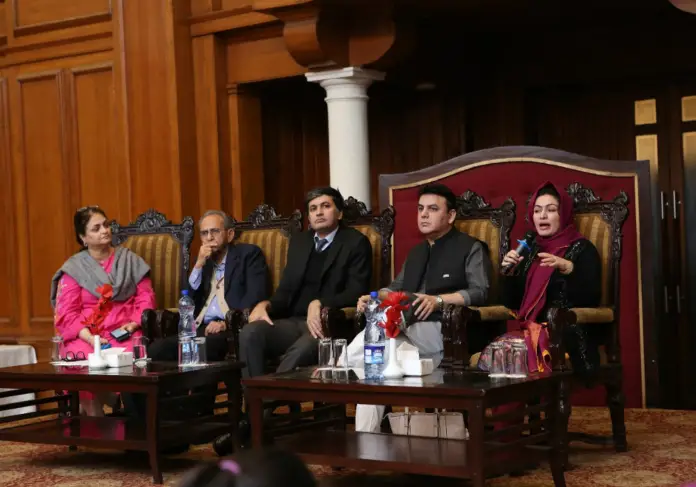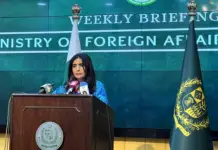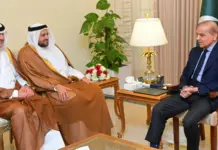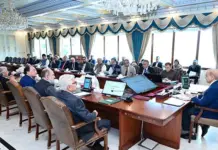Centre for Social Justice (CSJ) and Peoples Commission for Minorities Rights (PCMR) organized a conference on “Implementing the constitutional promise of the right to education for all (Article 25-A)”, wherein independent education policy experts and political parties’ representatives agreed on introducing reforms for more inclusive and equitable quality education. Speaking on the occasion, Peter Jacob reiterated the position of CSJ and PCMR stating that the civil society organizations will continue to remind governments and all decision-makers about their responsibility to ensure free and compulsory education to all children without any discrimination. Moreover, to achieve the target of enabling quality education as early as possible. Dr. A. H. Nayyar stated that national education policies were long wish lists, whose recommendations remained unsupported by their financial requirements. The current downward spiral of the quality of public education is deemed to have been a direct outcome of these empty wishes. Those policy steps that were implemented, have proven detrimental to quality education at all levels. The time has come to institute serious accountability in the education sector and to correct the course before it is too late.
Barrister Aamir Hassan (PPP) said that different education systems in Pakistan create a distinction between rich and poor due to the medium of instruction and language of communication which contributes to developing a cadre of inferior and superior classes. The electorate must demand political parties to develop an inclusive education system that promotes diversity and tolerance among different faiths. He observed that the nationalization of missionary schools was counterproductive to quality education. Bushra Anjum Butt (PML-N) said that a single national curriculum is impractical as there is a disparity of facilities and resources among different kinds of schools, moreover, a lack of trained teachers, and dropout children. Sultan Ali Ranjha (PML-N) said that our party is determined to make realistic promises in the election manifesto and undertake positive actions to fulfill pledges that contribute to quality education.
Saqib Jillani Advocate said that the government has been violating order no. 2 of the Jillani judgment (SMC 1 of 2014, etc.) and Article 22(1) of the constitution because school curriculum and textbooks of compulsory subjects like Urdu, English, and Social Studies carry substantial content relating to the religious instruction of majority religion, compelling non-Muslim students to learn Islamiyat in all courses. Dr. Riaz Ahmed Shaikh stated that the higher education sector has drastically failed in knowledge creation aligning with societal needs, and in fostering critical minds who can understand the real issues of this country, and introduce innovative solutions to address the crisis in Pakistan. The higher education sector in Pakistan needs a comprehensive overhaul. Taimur Bandey stated that school education can only be improved with the active involvement of educationists as planners and ministers. We need to completely revamp our outdated system over time and systematically bring in students and parents as stakeholders in the decision-making processes.
Dr. Sara Rizvi Jafree stated that girls face multiple barriers to accessing and pursuing education, including a shortage of schools, low-quality schools and teaching, and distant locations. The cultural barriers prevent girls from being enrolled in schools, retained in school beyond secondary schooling years, and gaining a specialist degree to improve their employability and agency. Effective measures need to be taken to address both quality and supply and demand-side issues and remove cultural barriers. Saima Anwer stated that public-private partnerships, alternatives to formal schooling, second-shift schooling and transport, technical vocational skills, 21st-century skills, and targeted social protection programs are essential components that complement conventional approaches to expanding access to education. Faaria Khan stated that the curriculum endorses otherization, a phenomenon which is further dividing the Pakistan society into silos. Despite the reduction of hate material, there is an extensive presence of religious content in textbooks which is unfavorable to many in the country. It is important to consider inclusive reform in the curriculum to ensure the protection of the right to religious freedom for all children in any classroom.
Peter Jacob, Dr. A. H. Nayyar, Dr. Riaz Ahmed Shaikh, Dr. Sara Rizvi Jafree, Taimur Bandey, Saima Anwer, Saqib Jillani Advocate, and Faaria Khan were among the panelists. Whereas, the politicians including Barrister Aamir Hassan (PPP), Bushra Anjum Butt (PML-N), and Sultan Ali Ranjha (PML-N) presented their parties’ perspectives on educational reforms. Lubna Jerar and Shakeel Ahmad moderated the panel discussions.







